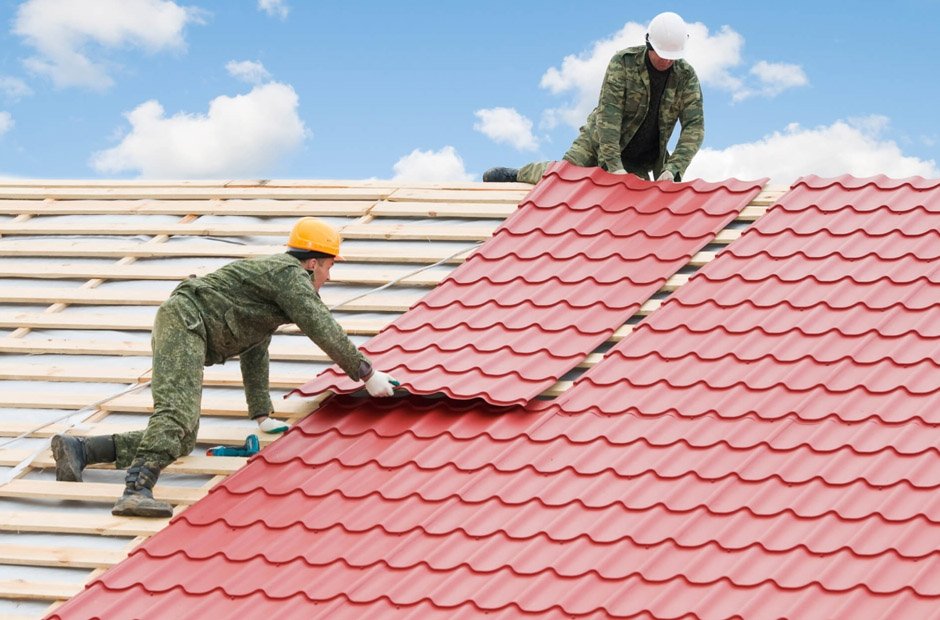Your roofing material affects how well your home resists weather, retains energy, and maintains structural integrity over time. It also influences indoor temperature regulation and moisture protection. A roofing company can help you assess and install the right materials for your home’s specific needs. Here are a few roofing materials and their benefits to help you make an informed decision:
Shingle
Asphalt shingles use an overlapping structure to shed water and protect the roof deck from moisture damage. Architectural and 3-tab styles may be used on sloped homes, offering reliable coverage across various roof shapes. The shingles come in multiple colors, helping maintain design consistency in residential areas with specific visual standards. They pair well with brick, siding, and stone exteriors. Their layered design suits different residential roof shapes, including gable and hip roofs. Asphalt shingles are relatively quick to install on sloped surfaces, which may help reduce the time your home is exposed during roof replacement.
Tile
Tile roofing is suitable for both residential and commercial projects. Clay and concrete tiles can resist damage from UV exposure and maintain their structure through seasonal temperature shifts. Their heavier weight helps anchor them in place during high winds, making them a reliable option in areas with storm activity. The material’s rigid structure also provides long-lasting coverage when installed on properly reinforced roof framing.
Metal
Metal roofing provides structural durability and reflects solar radiation, reducing heat absorption through the roof. This can help maintain lower indoor temperatures during warmer months, especially in regions with high sun exposure. Its physical properties make it suitable for projects such as energy-efficient home builds.
Metal roofing creates clean, defined lines along the roofline; this complements modern architecture and wide, low-slope designs where traditional shingles may be less effective. The smooth surface and minimal seams are ideal for homes that prioritize simplicity and efficient water flow. Proper installation forms a tight seal that helps direct runoff and reduces the risk of pooling.
Silicone Coating
Silicone coating provides an additional layer that seals cracks and closes pores to prevent leaks and surface wear. It can be applied directly over an existing asphalt roof without the need for removal or reconstruction. Some silicone options also offer energy benefits, helping to maintain a more regulated indoor temperature in your home.
When replacing the roof with a more efficient or longer-lasting option, silicone coating helps protect against water and sun damage. It may reduce the need for frequent repairs by sealing the surface and preventing leaks. This makes it a practical solution for extending the life of aging roofs or those with flat designs.
Order Your Roofing Material
The roofing material you choose plays a direct role in how your home handles weather and long-term wear. Options like shingles, metal, tile, and silicone may respond differently to sun exposure, moisture, and roof slope. Matching the material to your home’s structure and local climate supports durability and consistent performance. Consult with a roofing professional to determine the ideal material for your next project.



